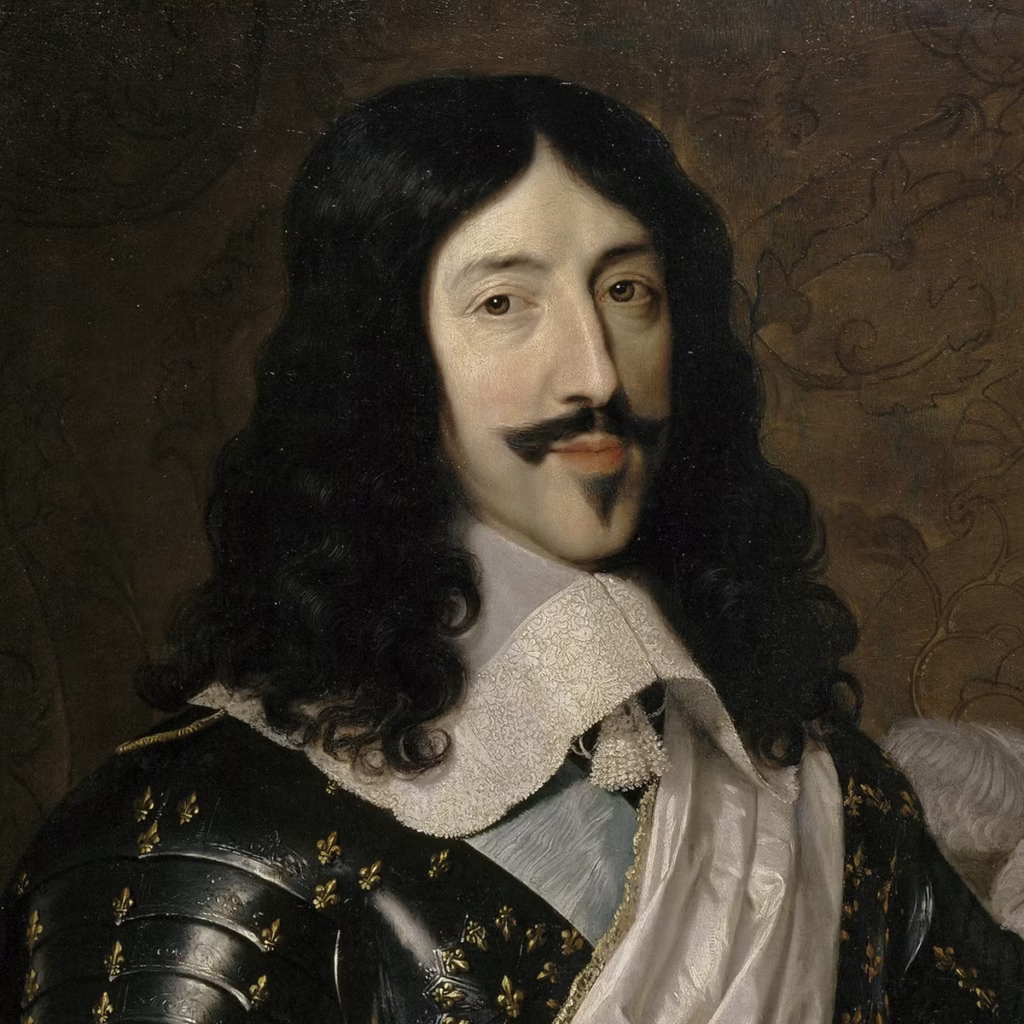
Table of Contents
Who Was Louis XIII?
Louis XIII became king of France at a young age, following the tragic assassination of his father, King Henry IV, in 1610. His reign, marked by both military successes and personal challenges, helped solidify his status as one of Europe’s most powerful rulers by the time of his death in 1643. Though Louis XIII displayed courage on the battlefield and secured important victories, his reign was also characterized by mental instability and chronic ill health, which often hindered his ability to focus on governance. Despite these challenges, he played a pivotal role in shaping France’s future, notably through his relationship with his chief minister, Cardinal Richelieu, and his military campaigns.
Early Life
Born on September 27, 1601, in Fontainebleau, France, Louis XIII was the eldest son of King Henry IV and Marie de’ Medici. He was raised alongside two brothers and three sisters, as well as several half-siblings from his father’s extramarital relationships. Louis XIII’s formative years were influenced by the political and religious turmoil of his time, particularly the ongoing conflict between Catholics and Huguenots (French Protestants). His father, Henry IV, who had converted from Protestantism to Catholicism, attempted to ease these tensions with the Edict of Nantes in 1589, which granted limited religious freedom to Protestants but faced opposition from the Catholic majority.
Louis XIII was only nine years old when his father was assassinated in 1610, thrusting him into a position of power at a tender age.
King of France
Upon his father’s death in 1610, Louis XIII was crowned king in October of the same year at the historic Reims Cathedral. However, due to his youth, his mother, Marie de’ Medici, assumed the role of regent, effectively ruling on his behalf. One of her first acts was to arrange his marriage to Anne of Austria, the daughter of King Philip III of Spain, which aimed to strengthen ties between France and Spain. At just 14 years old, Louis XIII married Anne in 1615, though their relationship was strained from the outset. Louis, disinterested in his wife, failed to produce an heir, and Anne suffered multiple miscarriages.
In 1617, at the age of 16, Louis XIII took control of the monarchy, sending his mother into exile in Blois. From that point, he relied heavily on the advice of his close advisers, most notably Cardinal Richelieu, whom he appointed as chief minister in 1624. Richelieu became a dominant figure in both foreign and domestic policy, guiding Louis through several key challenges during his reign.
One of the most notable events in Louis XIII’s reign was the Siege of La Rochelle in 1628, a decisive victory against the Huguenots that reinforced royal authority. His personal and political struggles continued, however, as he faced opposition from his mother in 1630, who sought to have Richelieu removed from office. Louis chose to side with Richelieu, sending his mother into exile once more.
In 1635, Louis XIII declared war on Spain, which strained his relationship with his wife, Anne. Richelieu accused her of treason in 1637, though the charges were never substantiated. Despite these tensions, Louis’s military success in the war helped bolster his popularity and respect among his people.
Death and Legacy
Louis XIII’s personal life was marred by difficulty, but he and Anne of Austria eventually had two sons: Louis XIV, born in 1638, and Philippe, Duke of Orléans, born two years later. Unfortunately, Louis XIII’s health deteriorated rapidly in his later years, and he succumbed to tuberculosis on May 14, 1643, at the age of 41, at the royal estate of Saint-Germain-en-Laye.
Louis XIII’s death marked the beginning of the reign of his son, Louis XIV, who would go on to become one of France’s most famous monarchs, known as the Sun King. Louis XIII’s legacy, shaped by his military achievements and the consolidation of royal power through figures like Richelieu, laid the groundwork for his son’s absolute monarchy, which would dominate France for over seven decades.
